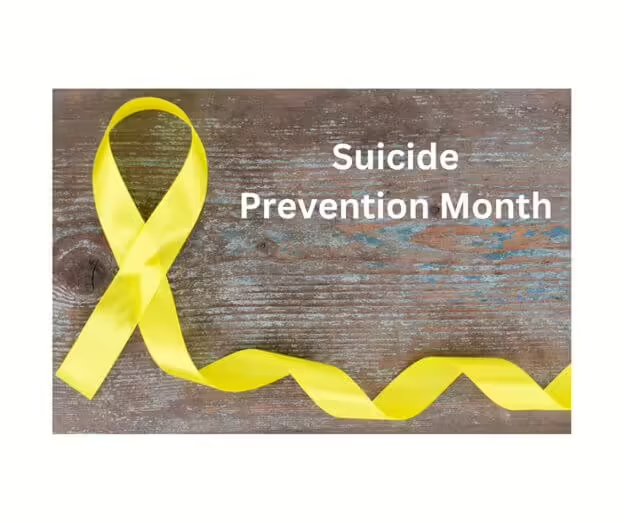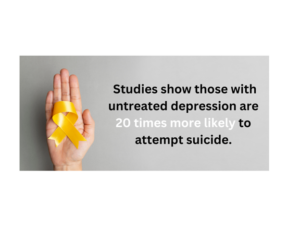As Suicide Prevention Month draws attention to this critical issue, you may be wondering how to support those struggling with mental health challenges. At Greater Boston Behavioral Health, we understand the complex factors that can lead to suicidal thoughts, including depression, trauma, and anxiety. With suicide rates on the rise, claiming nearly 46,000 lives in the U.S. annually, it’s crucial to know help is available. Our comprehensive treatment programs, including Intensive Outpatient (IOP) and Partial Hospitalization (PHP) options, provide expert care day and night. By recognizing warning signs and seeking professional support, you can play a vital role in preventing suicide and promoting mental wellness in your community. This September, reach out to us at (888)278-0716 and take the first step toward reclaiming your life.
The Importance of Suicide Prevention Month
A Sobering Reality
Suicide is a devastating public health crisis that impacts people across all ages, genders, and backgrounds. With over 45,000 deaths by suicide in the U.S. each year, this preventable tragedy leaves an indelible mark on families and communities.
Raising Awareness
September is designated as Suicide Prevention Month – a crucial time to increase public dialogue, reduce stigma surrounding mental health struggles, and ensure access to vital resources. By amplifying messages of hope and support, we can empower those in crisis to seek the help they need.
Depression is a Leading Risk Factor for Suicide
The Stark Reality
Depression dramatically increases the risk of suicide. Studies show those with untreated depression are 20 times more likely to attempt suicide. Sadly, suicide claims over 47,000 American lives annually.
Getting Timely Treatment
The good news? Proper treatment significantly reduces suicidal thoughts and behavior. Seeking professional help through therapy, medication, or both is crucial for managing depression’s grip. Greater Boston Behavioral Health offers evidence-based programs to guide you through this difficult journey.
Suicide Warning Signs to Look Out For
Behavioral Changes
Significant behavioral shifts can signal potential suicidal thoughts or intentions. Be alert for changes like withdrawing from activities, isolating from friends and family, or giving away prized possessions. Reckless actions, increased substance abuse, and a lack of self-care may also raise red flags.
Verbal Cues
One of the most direct warning signs is someone talking about wanting to die or kill themselves. They may feel hopeless, like a burden, or express having no reason to live. Sudden calmness after being depressed can also indicate they’ve decided to end their life.
Mood Shifts
Watch for mood changes like increased sadness, anxiety, irritability or sudden improvement after being severely depressed. A loss of interest in activities they once enjoyed and sleep disturbances are other potential indicators of suicide risk.
High-Risk Situations
Certain life events can heighten vulnerability, like losing a spouse, experiencing abuse or trauma, chronic pain or terminal illness diagnoses. Having attempted suicide before or a family history of suicide also increases risk factors to monitor closely.
Greater Boston Behavioral Health Provides Treatment for Depression
Comprehensive Care
Greater Boston Behavioral Health is an outpatient mental health clinic that offers personalized, evidence-based treatment for depression and co-occurring conditions. Their team of certified professionals utilizes Eye-movement desensitization and reprocessing therapy (EMDR) medication management, and lifestyle changes to develop customized care plans.
Holistic Approach
The clinic’s holistic approach aims to address the underlying causes of depression. Individual and group therapy, along with support services, help clients build coping skills and a supportive network. Various levels of care, from outpatient to intensive programs, cater to diverse needs.
Cognitive Behavioral Therapy for Depression
Backed by Evidence
Cognitive Behavioral Therapy (CBT) has been rigorously studied and found to be as effective as antidepressant medications in treating depression, with a medium effect size. When delivered by experienced therapists, even patients with severe depression can benefit from CBT to the same degree as medication.
Long-Lasting Benefits
One key advantage of CBT is its enduring effect in protecting against relapse and recurrence after active treatment ends – an effect comparable to continuing antidepressants. Adding CBT or mindfulness techniques after initial medication can further reduce the risk of future episodes.
Intensive Outpatient and Partial Hospitalization Programs
For those struggling with severe depression, suicidal thoughts or other mental health crises, intensive outpatient (IOP) and partial hospitalization programs (PHP) offer comprehensive treatment.
Higher Levels of Care
These higher levels of care provide structured treatment several hours per day, several days per week. IOPs typically involve 3-4 hours of daily programming, while PHPs can be 6-8 hours per day.
Therapeutic Interventions
Through group therapy, individual counseling, medication management and other interventions, patients learn coping skills to manage their conditions. Family involvement is also strongly encouraged.
Step-Down Approach
IOPs and PHPs allow a step-down approach from inpatient hospitalization. Or they can prevent the need for hospitalization by providing intensive treatment on an outpatient basis.
Conclusion
As Suicide Prevention Month comes to a close, remember that seeking help for depression, anxiety, trauma, and other mental health challenges is a sign of strength, not weakness. The statistics on suicide are sobering, but there is hope. Greater Boston Behavioral Health offers comprehensive support through our Intensive Outpatient Program (IOP) and Partial Hospitalization Program (PHP), providing flexible day and night treatment options. By reaching out to Greater Boston Behavioral Health at (888)278-0716 and accessing professional care, you can find the tools and support needed to overcome mental health struggles. Don’t hesitate to take that crucial first step toward healing and reclaiming your life. Your journey to better mental health starts here.


